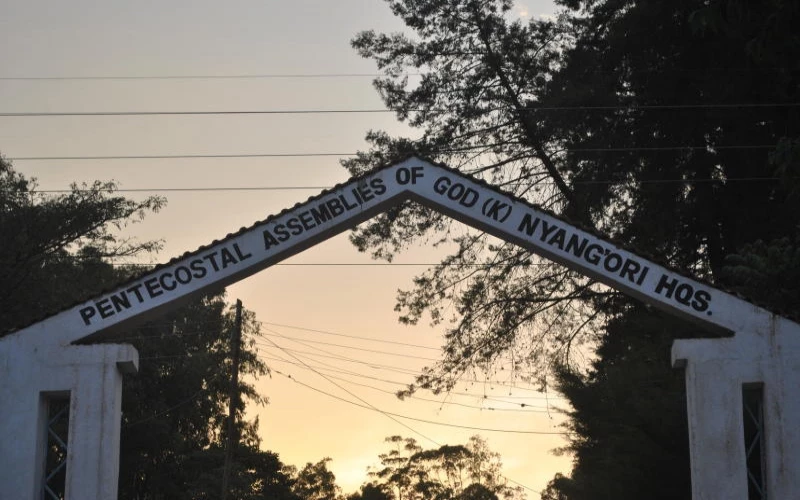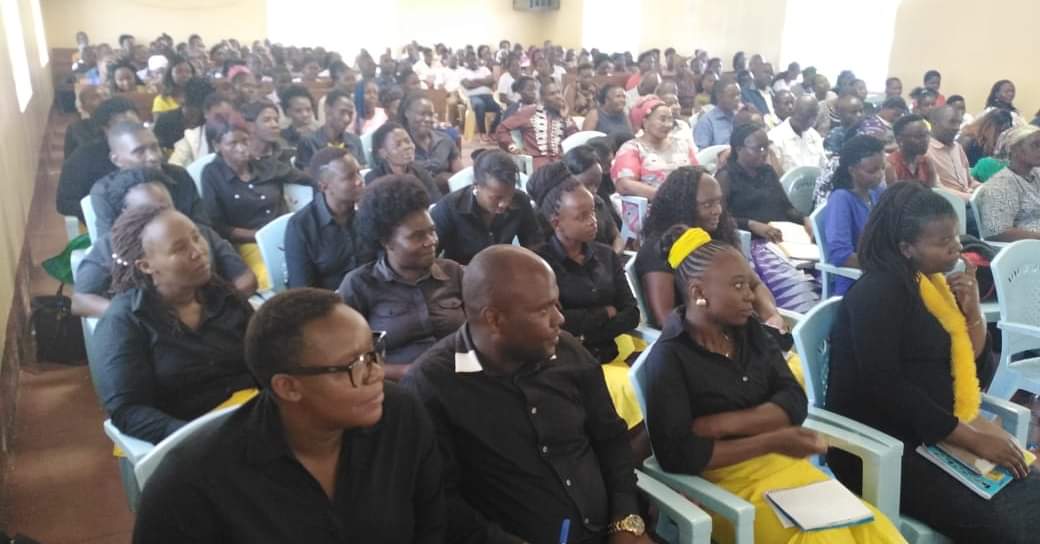Our Story
History of Marion Keller [1889-1953] and Otto Keller [1888- 1942]
The Pentecostal Assemblies of God [PAG] Kenya headquarters are situated at a hill-top (Nyang’ori - Kiboswa) on the outskirt of Kisumu City .
Pentecostal Assemblies of God [ PAG] was founded in Kenya by PAOC – Pentecostal Assemblies of Canada. The founders were Marion and Otto Keller in the early 1900’s. . PAG grew rapidly and spread all over the country.
Marion and Otto Keller were among the first missionaries of the Pentecostal Assemblies of Canada. Marion pioneered work in Tanganyika. They started mission work at Nyang'ori, near Kisumu, Kenya and established the Pentecostal Assemblies of God in East Africa.
Marion was born in 1889 in Parry Sound, Ontario, Canada. While working as an Anglican school teacher in Parry Sound she felt called to missionary work. She went to a Bible School in New York State where she met Karl Wittich, her first husband. In 1913, together with a young man named Grothaus, they set out for Tanganyika, a German colony.
The administration assigned them to work among an unreached tribe several hundred miles inland, east of Tabora. They had to learn to build their grass huts by themselves because the local people would not help. As the water source was nine miles away, the men decided to dig a well at the station. Three months after arriving in Africa, when they finally struck water they made a pot of tea to celebrate. Nevertheless, the water was poisonous and in two days both men were dead and Marion was desperately sick. The local people informed the authorities of the two dead "Wazungu" (white people) and Marion was carried to a mission hospital in the district and eventually recovered.
Marion was an exceptional young woman with a keen mind and a strong will. After her recovery, she returned to the mission station to live alone and to continue the work there for four grueling years. She lived like the Africans in a mud hut, ate the same food they did, including lots of zebra meat, and cooked over the traditional African stove, i.e. three stones. She became so proficient in the Kiswahili language that the administration asked her to set up the examination for civil servants coming to the country.
During World War I, communication with her homeland was cut off for four years. During this time Marion was taken by German officials to the mission station and was imprisoned for a week before being released. One day God told Marion to prepare to go on furlough - an impossible undertaking as she had not received any money for years. Moreover, all the bridges down the coast,- a 600 mile journey,- had been destroyed by the enemy and no transportation of any kind was available. Nevertheless, even though it was forbidden at the time, she asked for permission to leave the country and her application was accepted. Two mission boys,- their first converts,- accompanied Marion to the railroad station where the station agent gave her a free ticket. One of the boys was eaten by a lion on the walk back. Sitting on her luggage, Marion rode for 50 miles on a troop train to Mwanza, on the southern end of Lake Victoria where she boarded a ship. Very ill, suffering from sunstroke, exhaustion and the heat, she did not know what awaited her in Kisumu, Kenya, only that the Lord had told her to go.
Otto C. Keller was born in 1888 in Germany and emigrated to the United States. He became a very successful builder in Detroit, U.S.A., a committed Christian and Karl Wittich's best friend. When he heard of his friend's death in Tanganyika he felt he should continue Karl's work there. Otto sold his business and was appointed a missionary by the Pentecostal Assemblies of Canada in 1914. When he arrived in Kenya en route to Tanganyika he was not allowed to enter the country. At that time, with a severe famine in Kenya, the administration asked him to do famine relief work in the Kisumu area among the Kavirondo tribe (Luo today). He got to know the different tribes in the Kisumu district and, a gifted linguist, he soon became fluent in five of the local languages. As he was not attached to any mission, he often filled in while a missionary was on leave.
When Otto heard that a sick woman was arriving on a ship from Mwanza and thinking that it might be his friend's widow, he met the ship. He immediately took her to a mission hospital where she slowly recuperated. During his frequent visits to the hospital he fell in love with her and asked her to marry him. Needing time, she went home to think it over.
In the meantime, Otto purchased a seventy-five acre piece of land in the hills of Kisumu from a man named Claude Miller who had come to Kenya about ten years earlier to begin a mission among the Nyang'oris, a small branch of the Kalenjin tribe. When Miller fell into disfavor with the government and had to leave the country he sold the property to Otto Keller.
Marion returned to Kenya and they were married in 1918. The newlywed couple settled down in Kisumu to begin their work. The following year, Otto was ordained by the Pentecostal Assemblies of Canada.
Starting from scratch they built three main stations which grew to over 200 branch churches staffed by approximately 500 pastors, teachers and evangelists. They had an only child, Weldon Philip Keller, born in 1920 in Kisumu, Kenya, who later became a well-known Christian author.
After nearly 32 years in Africa, Otto died at the age of 54 from an infection following an appendix operation. He was buried at the Nyang'ori Mission in Kisumu. Marion carried on the work until other missionaries came to take over. Then she returned to Victoria in British Columbia until her death in 1953.


Embakasi P.A.G Church has been in existence for more than 5 years and is planning to expand and open up several other branches, hence the name 'Embakasi P.A.G Group of Churches'.
Our Core Values

1. We Uphold family
2. We value Partnership
3. We embrace Unity

1. Live in holiness
2. Pursue Excellence
3. Practice Honesty

1. Individual - Intentional Discipleship
2. Institutional - Servant Leadership
3. Societal - Advocacy and Social Action

1. To The Lost - Grace and Mercy
2. To The Least - Love and Compassion
3. To The Last - Dignity and Respect
